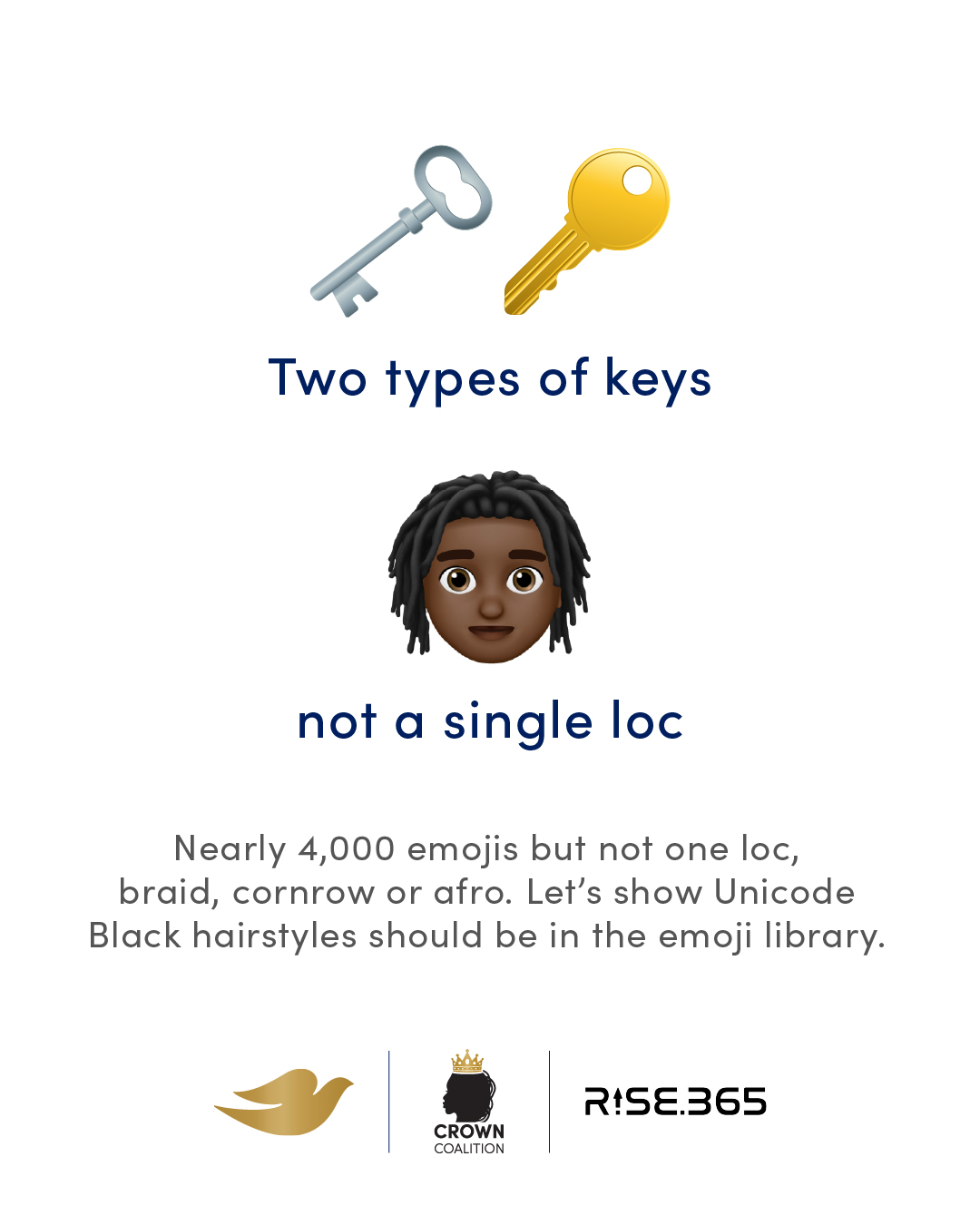Dove and RISE.365 have joined forces on a campaign to make the emoji library more conducive to visibility, self-expression, and digital inclusivity. On March 26, they formally called on Unicode Consortium to add four emojis that accurately represent the texture, buoyancy, and flavor of Black hairstyles.
If you don’t know (don’t feel bad this writer was today-years-old when she learned this), the Unicode Consortium is a nonprofit that regulates the coding standards for written computer text, including emojis, so they’re definitely the folks Dove and RISE.365 needed to hit up. But why? Some may say it’s just hair. While others may say it’s just emojis. Well, 92 percent of the world’s population uses the 4,000 emojis available now, according to Dove, but Black people find much to be desired when attempting to represent themselves through emojis. In fact, Dove’s research has found that eight in 10 Black people in the U.S. struggle to find emojis that accurately depict their hair. Some don’t even bother searching because they know the emojis don’t exist. Here are some more stats from Dove’s research:
- 69% of Black people think it is important for emojis to accurately represent hair features
- 69% of Black people say they use emojis to represent their identity, physical characteristics, and culture, yet the absence of relevant hair emojis forces them to compromise.
- 57% of Black people report feeling undervalued due to this lack of representation, perceiving their identity as less important.
- 66% of Black people in the U.S. say it would make them feel seen if a diverse range of emojis were available for natural or protective hairstyles.

As a CROWN Coalition co-founder and Code My Crown advocate, Dove is intent on celebrating natural hair. Therefore, Dove partnered with RISE.365–a London-based community group dedicated to empowering youth and driving lasting, positive change–to advocate for four emojis that accurately depict textured hairstyles, including afro, locs, braids, and cornrows. Young leaders from RISE.365 thoughtfully designed each of the four proposed emojis, which celebrate the beauty, diversity, and gravity-defying nature of Black hair.
However, this isn’t the first time someone has requested Unicode Consortium to include emojis that are more representative of Black natural hairstyles. New York-based writer Rhianna Jones submitted a proposal that was backed by more than 65,000 people to Unicode Consortium for an afro hair emoji, in 2019. Unicode Consortium declined, arguing that the “curly hair” emoji was sufficiently representative.
Dove and RISE.365 are amplifying the call for emojis to depict the beauty of Black hairstyles accurately, but just like with the CROWN Act, which 27 states and Washington, D.C. have adopted as of the end of 2024, they need the public’s help. Let the world know that Black people deserve to see our hairstyles represented in the emoji library by commenting #CodeMyCrown on the below post by April 10.
https://www.instagram.com/p/reel:DHqV0QwpODR
This initiative is about more than emojis and vanity; it’s about visibility, identity, representation, value, and culture.




